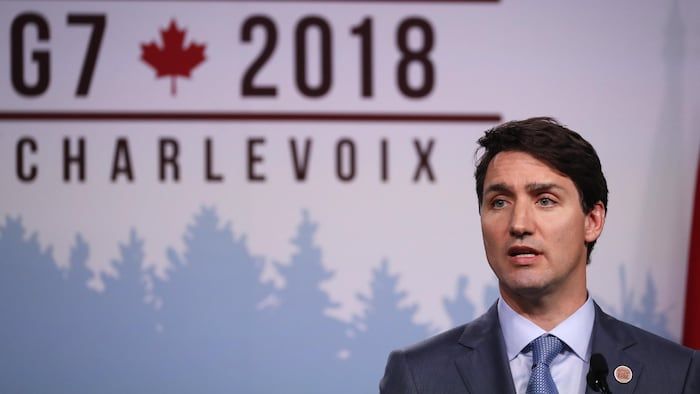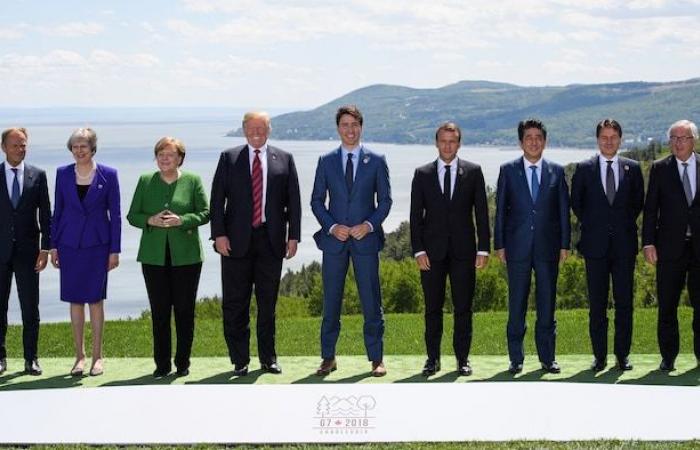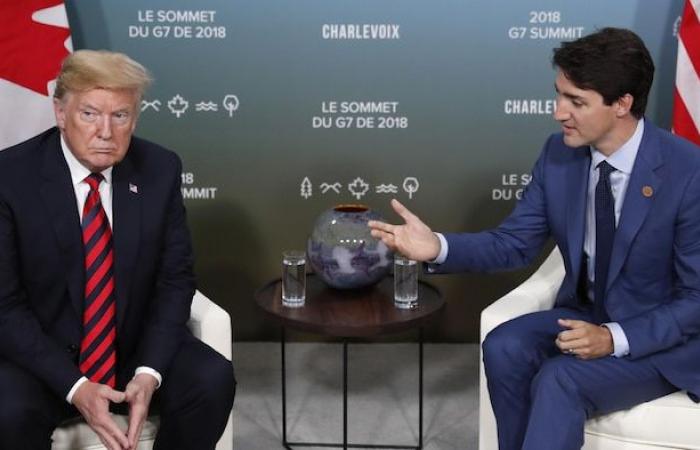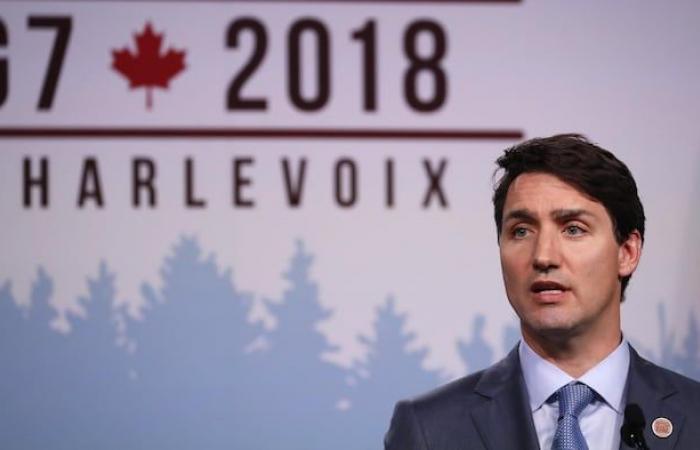From June 15 to 17, Canada will host the G7 summit of heads of state and government. The event will be held in Kananaskis, in the Alberta Rockies, against a backdrop of political instability domestically and internationally.
Here’s a look at what it means to host the G7 and what’s at stake.
What is the G7?
The G7 includes Canada, the United States, France, Germany, Japan, the United Kingdom, Italy, as well as the European Union. For 50 years, its members have coordinated how liberal democracies respond to economic and societal challenges.
The G7 has no charter and no offices or permanent administration. It makes its decisions by consensus, without a formal vote.
The rotating presidency involves a series of meetings in the host country to coordinate policies ranging from defense to digital regulation.
The summit often ends with a communiqué that sets the tone for other industrialized democracies and can influence global policies at the United Nations.
Canada, a member for half a century
Canada, which joined the group in 1976, is set to chair the summit for the seventh time.
The country is also known for the G7 Research Group at the University of Toronto. This is an independent project that monitors whether member countries are honoring the commitments they have made as part of the group.
Russia was a member of the group from 1997, becoming the G8, until it was excluded in 2014 for having annexed Crimea.
Open in full screen mode
The last time Canada hosted the G7 was in 2018, in Charlevoix, Quebec. (Archive photo)
Photo : Getty Images / Leon Neal
The importance of being part of the G7
US National Security Advisor Jake Sullivan called the G7 a free world steering committee
in 2022.
Senator Peter Boehm, a former diplomat who played a central role in Canada’s participation in the G7 for decades, said for his part that the group is potentially the crown jewel of [la] foreign policy
from maple country.
Initially, the group focused primarily on economic issues. The rise of countries like China and India has prompted a focus on the rule of law, human rights and open markets.
Canada’s Priorities
Until now, Global Affairs Canada has been content to say that the country will move forward shared priorities, such as building economies that benefit everyone, tackling climate change and managing rapidly evolving technologies
.
Prime Minister Justin Trudeau has pledged to support research projects on how artificial intelligence can be used without undermining human rights and democratic values.
He is expected to stick to some of Canada’s top global priorities, including supporting Ukraine, combating foreign interference and reforming financial agencies such as the World Bank.
Peter Boehm thinks Mr. Trudeau could also try to strengthen support for the World Health Organization (WHO) or join calls for reform of the institution.
Former Canadian Foreign Minister Lloyd Axworthy and others are calling on Canada to revive a 2002 initiative to reduce stockpiles of chemical and nuclear weapons.
I think the G7 is an opportunity for Canada to once again become an effective diplomatic player in the world.
Who to invite?
In the meantime, Canada will have to decide who to invite to the summit. At the 2018 summit in the Charlevoix region of Quebec, leaders from island countries discussed the impact of climate change and plastic pollution in the oceans.
South Africa separately chairs the G20 this year, a much larger group that has far less consensus than the G7.
Peter Boehm thinks he would very intelligent
that this country is represented in Alberta.
Open in full screen mode
The last time Canada hosted the G7, Donald Trump left the summit earlier than expected. (Archive photo)
Photo : Reuters / Leah Millis
The Trump equation
The last time Canada hosted the G7, in 2018, Donald Trump refused to sign the final communiqué. He left the summit early and called Justin Trudeau a very dishonest and weak
during a dispute over customs duties.
Donald Trump’s return to the White House this month has cast new uncertainty over the G7, given his preference for striking direct deals rather than working within multilateral groups.

Open in full screen mode
If Justin Trudeau manages to survive politically between now and June to be able to chair the summit, he will be the longest-serving of his peers. (Archive photo)
Photo : Reuters / Yves Herman
The fate of Justin Trudeau in suspense
If Justin Trudeau manages to weather the political storm by June to chair the summit, he will be the longest-serving of his peers, Peter Boehm noted: He will know what he wants to accomplish and what the most relevant questions and themes are.
Regardless, Canada will succeed in organizing the G7 summit, whoever the prime minister is, adds the former diplomat.
With information from The Canadian Press








